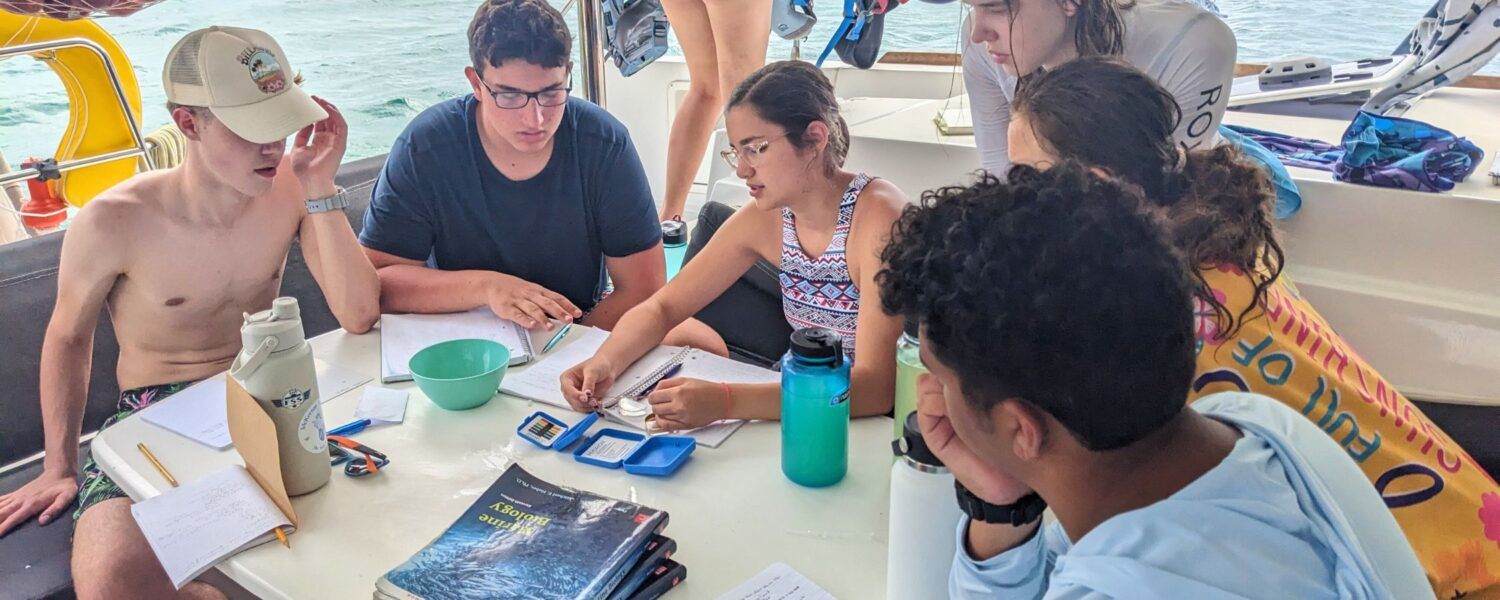
Five Pitfalls to Avoid to Turn Your Broadreach Adventure into a Winning College Essay
October 30, 2024 High School Adventures, Parents
Craft a Standout College Essay from Your Broadreach Experience: Expert Tips from InGenius Prep
You just returned from an epic summer adventure with Broadreach bursting with memories and ready to share your stories with everyone back home! Broadreach trips expose students to new cultures, perspectives and experiences. They can be pivotal in shaping a student’s future career or academic goals: to pursue a career in veterinary medicine, marine biology or wildlife conservation. It’s natural, then, that many Broadreach alumni students choose to write about their programs in college or scholarship applications. However, it’s important to be strategic when writing about travel experiences like Broadreach to avoid sounding cliche or forgettable. We asked our friends at InGenius Prep, an admissions counseling organization, for tips on common pitfalls to avoid and what to do instead to help you stand out to Admissions Officers.
Pitfall 1: Focusing Too Much on the Destination and Activities
What to Avoid: Avoid simply describing the destination where you traveled or listing the program highlights—how beautiful the Caribbean waters are, how unique the Galápagos wildlife is, or how thrilling it was to scuba dive. While these details might be exciting to relive, they don’t tell Admissions Officers much about you. This can make your essay seem like a travelogue instead of a personal reflection.
“Travel, by itself, is not going to impress an Admissions Officer enough to make them admit you,” says Zak Harris, former Admissions Officer and current InGenius Prep counselor. “Mentioning travel for travel’s sake can make your application seem privileged or disconnected from the traits Admissions Officers value. Admissions Officers are not impressed simply by the fact that you’ve traveled; they want to see how travel shaped you.”
What to Do Instead: Focus on what you learned or how you grew. Describe a moment that transformed you or changed your perspective, linking it to your academic or personal goals. For example, instead of describing the reefs in the Caribbean, share how studying marine ecosystems firsthand gave you insight into the importance of biodiversity and inspired you to pursue environmental conservation.
“Creating an “Application Persona” is one of the best tactics for making an impression on Admissions Officers,” explains Harris. An Application Persona is a simple, compelling theme that runs through your entire application. Often boiled down to one sentence, the best Application Personas are engaging, memorable, and unique to each student.
Examples of Application Personas that would work well for Broadreach students might be “an environmental science student interested in the biodiversity of tropical climates,” or “a veterinary student interested in hands-on experience with marine animals.”
If your Broadreach experience aligns with your academic interests, it can become a core part of that persona. For example, if you plan to study environmental studies, your persona could focus on your interest in climate change and conservation, with experiences from your Broadreach trip in the Yucatan as key evidence of your commitment.
“By including these relevant travel experiences in your Application Persona, you can show that you are dedicated and passionate about your area of interest, making you a more compelling candidate for admission,” says Harris.
Pitfall 2: Generalizing Your Experiences
What to Avoid: Avoid vague statements like “I learned a lot,” or “I gained a new perspective.” While true, these phrases don’t convey much about what you actually took away from the experience, and they risk making your essay feel generic.
What to Do Instead: Be specific. Share distinct details or anecdotes that highlight the skills or personal growth you gained through Broadreach. Describe how you immersed yourself in a new environment, connected with local communities, or contributed to a meaningful project. Maybe during a shark dive in Fiji, you learned to stay calm under pressure—a valuable trait that could be linked to resilience or adaptability. Or perhaps leading a project on sea turtle conservation in Costa Rica taught you about responsibility and teamwork. Specific stories make your experiences more relatable and memorable for admissions officers.
Pitfall 3: Writing a “Savior” Narrative
What to Avoid: Framing your experience as if you were “saving” or “helping” another culture can come across as privileged or insensitive. Colleges are interested in globally-minded students, but it’s important to demonstrate humility and a learning mindset.
What to Do Instead: Emphasize what you learned from others and how the culture or environment you were immersed in influenced your thinking. For example, explain how working with local scientists and community members in Curaçao or Costa Rica deepened your understanding of conservation practices and sparked your desire to address environmental challenges in your own community. Showing humility and highlighting your openness to learn from others, rather than trying to “help,” demonstrates cultural awareness and respect.
Pitfall 4: Overlooking the Importance of “Fit” with Each School
What to Avoid: Many students write a single essay about their travel experiences without customizing it for each college. This one-size-fits-all approach misses a valuable opportunity to show how you’ll fit into each school’s unique community. “Admissions Officers aren’t just looking for the best students; they’re looking for students who will thrive in their institution’s culture,” says Harris.
What to Do Instead: Tailor your essay to each school’s values. Research each college’s focus areas, student organizations, or unique academic programs, and mention how your Broadreach experience aligns with them. For example, if you’re applying to a school with a strong global studies focus, explain how learning about cultural conservation on your trip made you excited to engage with their global community. Schools with environmental science programs might be especially interested in your hands-on research or conservation work in Ecuador’s rainforests, for example. By aligning your story with the college’s values, you demonstrate that you understand their community and see yourself as part of it.
Pitfall 5: Trying to Impress Rather Than Being Authentic
What to Avoid: Many students feel pressure to make their experiences sound impressive, which can lead to overly polished or insincere essays. Admissions Officers quickly recognize essays that seem more like lists of accomplishments than genuine reflections. “Your goal should be to make an impression, not be impressive,” asserts Harris.
What to Do Instead: Be authentic and personal. Think about how your Broadreach experience truly impacted you—whether it sparked a new academic interest, challenged a personal fear, or developed your empathy for others. Let your personality, voice, and reflections shine through in your writing. Colleges value authenticity, and essays that reveal genuine self-awareness often stand out the most.
By avoiding these common pitfalls and focusing on thoughtful storytelling, you can turn your Broadreach experience into a compelling narrative that supports your college application. Focus on your growth, your unique contributions and how the experience aligns with your future goals. In doing so, you’ll present a thoughtful, authentic story that resonates with Admissions Officers and shows why your journey matters.
Visit InGenius Prep for more college application tips and strategies or schedule a free consultation.
About InGenius Prep: InGenius Prep is an admissions counseling company that guides students through the college and graduate school application process by offering personalized support, including application strategy, essay editing, and interview preparation.
